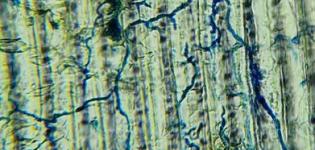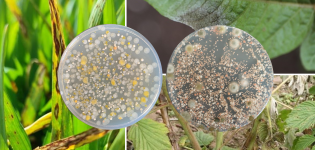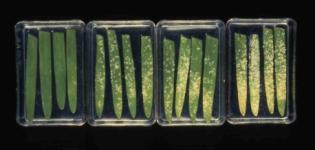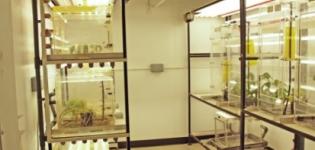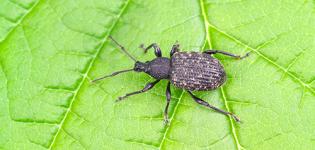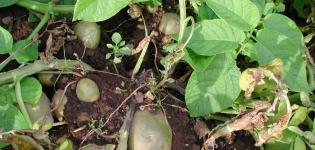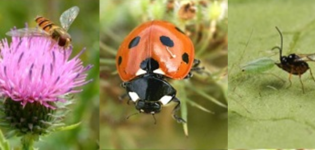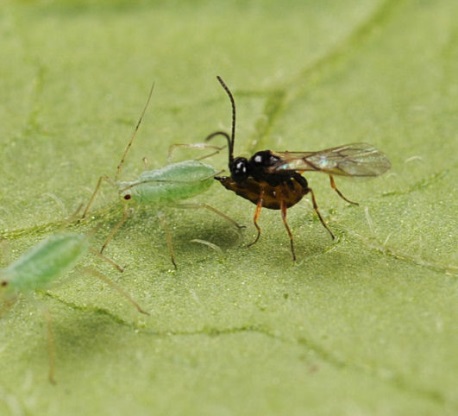 Many insect herbivores rely on symbiotic bacteria for their survival. These ‘hidden players’ residing in insect tissues can affect fitness of the insect host. For example, some insect species show increased resistance to natural enemies when certain ‘protective’ symbiotic bacteria are present, which could make it more difficult to control pest infestations.
Many insect herbivores rely on symbiotic bacteria for their survival. These ‘hidden players’ residing in insect tissues can affect fitness of the insect host. For example, some insect species show increased resistance to natural enemies when certain ‘protective’ symbiotic bacteria are present, which could make it more difficult to control pest infestations.
Under favourable conditions, parasitoid wasps can be effective natural enemies of aphids and they are frequently deployed to control infestations in glasshouses and polytunnels. Parasitoid wasps insert their eggs into the aphid body, from which a larva emerges that consumes and eventually kills the aphid. However, in the presence of certain protective symbionts, the parasitoid egg fails to develop.

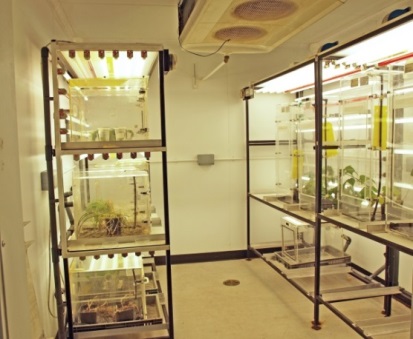
 Many insect herbivores rely on symbiotic bacteria for their survival. These ‘hidden players’ residing in insect tissues can affect fitness of the insect host. For example, some insect species show increased resistance to natural enemies when certain ‘protective’ symbiotic bacteria are present, which could make it more difficult to control pest infestations.
Many insect herbivores rely on symbiotic bacteria for their survival. These ‘hidden players’ residing in insect tissues can affect fitness of the insect host. For example, some insect species show increased resistance to natural enemies when certain ‘protective’ symbiotic bacteria are present, which could make it more difficult to control pest infestations.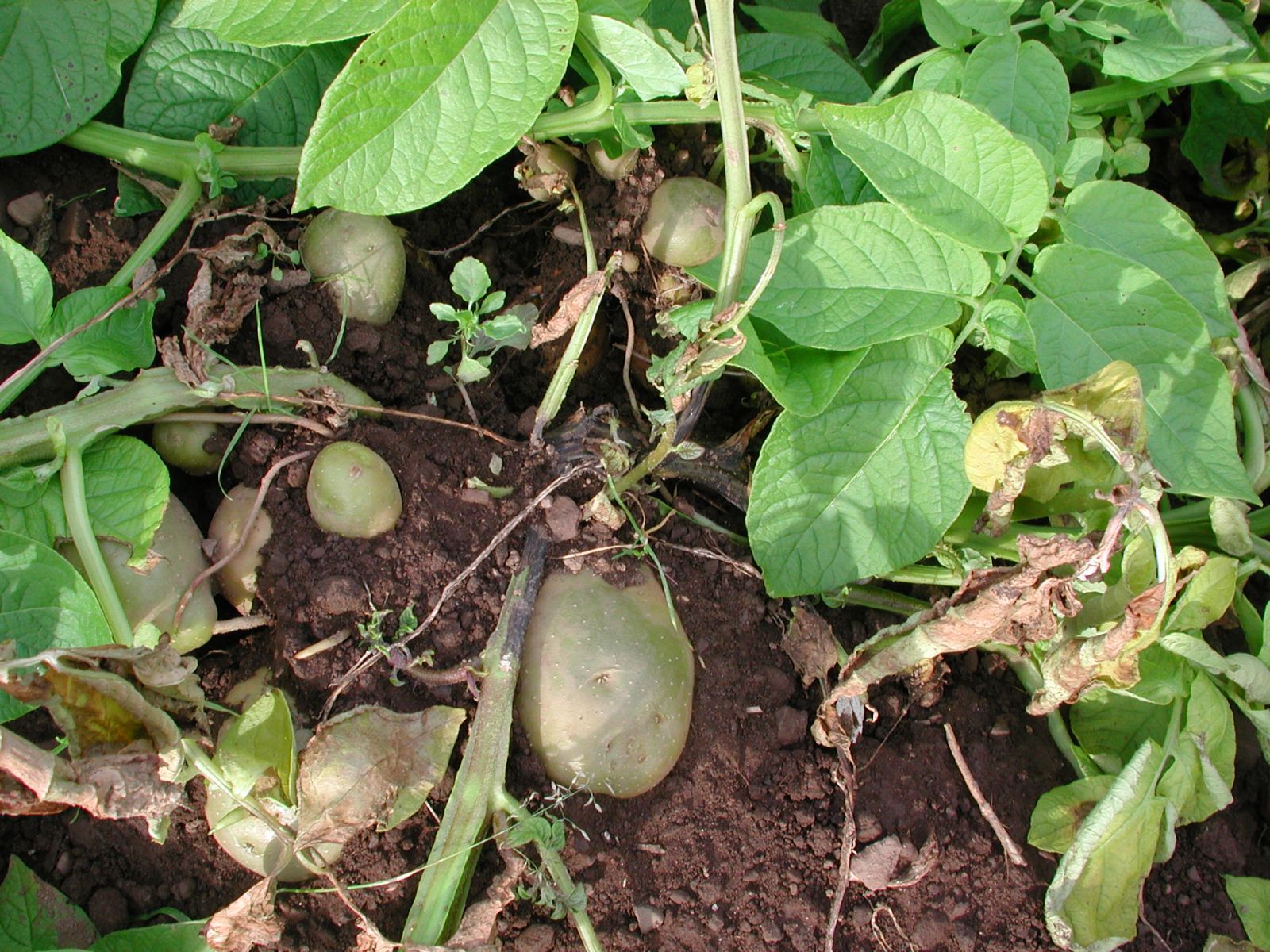 Blackleg (including soft rot) of potato is a devastating disease for which there are no chemical treatments. Disease control is particularly important for the seed potato industry as the pathogen, once present, increases in population through seed generations. Since the 1960s, disease has been controlled by ventilated storage, seed certification, good hygiene and more recently by managing seed imports (safe haven scheme and Government legislation). While disease incidence is much reduced than 50 years ago, it still remains a major problem both in Europe and beyond. Over the last 5 years blackleg disease appears to be on the increase although the reasons for this are not clear. At the Institute we are focussing on 4 control measures to be included in the blackleg IPM strategy.
Blackleg (including soft rot) of potato is a devastating disease for which there are no chemical treatments. Disease control is particularly important for the seed potato industry as the pathogen, once present, increases in population through seed generations. Since the 1960s, disease has been controlled by ventilated storage, seed certification, good hygiene and more recently by managing seed imports (safe haven scheme and Government legislation). While disease incidence is much reduced than 50 years ago, it still remains a major problem both in Europe and beyond. Over the last 5 years blackleg disease appears to be on the increase although the reasons for this are not clear. At the Institute we are focussing on 4 control measures to be included in the blackleg IPM strategy.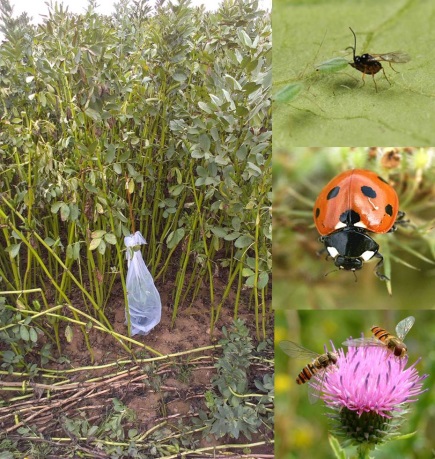 Reduction in the availability and quality of plant food resources through arable intensification and habitat fragmentation has been cited as a major cause of the decline in pollinators in the UK and worldwide, and is likely to have a negative impact on the activity and abundance of natural enemy species that rely on floral resources in their adult life stages. Many pollinator and natural enemy groups disperse over large distances in search of pollen and nectar, and this might be exacerbated in intensively-managed systems with low resource diversity. Alternative management systems that lead to increases in resource availability and quality for these insects are therefore likely to promote both diversity, through niche differentiation, and fitness, by reducing the need for insect foraging over large distances. Thus, management to increase within-field and farm-scale vegetation diversity is one option to combat declines in pollinator populations and promote numbers and activity of natural enemies.
Reduction in the availability and quality of plant food resources through arable intensification and habitat fragmentation has been cited as a major cause of the decline in pollinators in the UK and worldwide, and is likely to have a negative impact on the activity and abundance of natural enemy species that rely on floral resources in their adult life stages. Many pollinator and natural enemy groups disperse over large distances in search of pollen and nectar, and this might be exacerbated in intensively-managed systems with low resource diversity. Alternative management systems that lead to increases in resource availability and quality for these insects are therefore likely to promote both diversity, through niche differentiation, and fitness, by reducing the need for insect foraging over large distances. Thus, management to increase within-field and farm-scale vegetation diversity is one option to combat declines in pollinator populations and promote numbers and activity of natural enemies.